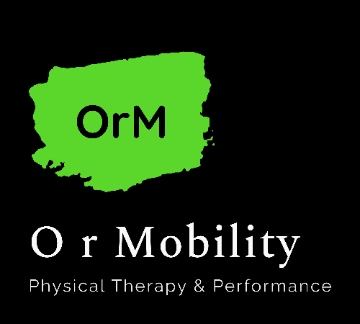Introduction
Embarking on a physical therapy journey is a significant step toward regaining mobility, reducing pain, and enhancing overall well-being. Setting clear and achievable goals is a fundamental aspect of physical therapy, guiding patients and therapists alike on the path to recovery. One commonly asked question is, “How long is a short-term goal in physical therapy?” In this comprehensive guide, we will explore the intricacies of short-term goals in physical therapy, providing insights into their duration, purpose, and impact on the rehabilitation process.
Understanding Short-Term Goals in Physical Therapy
Defining Short-Term Goals
Short-term goals in physical therapy refer to specific, attainable objectives set for the immediate weeks or months of the rehabilitation process. Unlike long-term goals, which encompass broader outcomes and may take longer to achieve, short-term goals are designed to be realistic and measurable within a relatively brief timeframe. They serve as building blocks, leading patients step by step toward their overall rehabilitation objectives.
Importance of Short-Term Goals
Short-term goals play a crucial role in physical therapy for several reasons:
- Motivation and Focus: Short-term goals provide patients with tangible milestones to work toward, keeping them motivated and focused on their progress.
- Measurable Progress: Achieving short-term goals allows patients to see measurable improvements in their condition, reinforcing their commitment to the rehabilitation process.
- Customized Approach: Short-term goals are tailored to each patient’s unique needs, ensuring that the therapy sessions are aligned with their specific objectives.
- Adjustment and Adaptation: Therapists can assess patients’ progress regularly and modify short-term goals as needed, ensuring that the rehabilitation plan remains effective and efficient.

Determining the Duration of Short-Term Goals
Duration of Short-Term Goals
The duration of short-term goals in physical therapy can vary based on several factors:
- Nature of the Condition: The type and severity of the patient’s condition significantly influence the duration of short-term goals. Acute injuries might have shorter-term goals for initial pain management, while chronic conditions may have longer short-term goals focused on functional improvement.
- Treatment Intensity: The frequency and intensity of therapy sessions also impact the duration of short-term goals. More frequent sessions may allow for quicker progress and achievement of short-term objectives.
- Patient’s Response: Patient responsiveness to therapy, adherence to exercises, and overall commitment to the rehabilitation process play a vital role. Patients who actively engage in their exercises and lifestyle modifications often achieve short-term goals more efficiently.
- Therapist’s Assessment: Experienced physical therapists continuously assess patients’ progress, adjusting short-term goals based on their observations. Flexibility in goal setting allows therapists to adapt to patients’ changing needs.
Examples of Short-Term Goals in Physical Therapy
Sample Short-Term Goals
- Improve Range of Motion: Patient will achieve a 10-degree increase in knee flexion within four weeks, facilitating improved mobility and reduced joint stiffness.
- Enhance Balance and Stability: Patient will maintain balance for 30 seconds during single-leg standing exercises within three weeks, reducing the risk of falls and improving overall stability.
- Reduce Pain Levels: Patient will report a 30% reduction in pain intensity during daily activities within two weeks, enhancing comfort and quality of life.
- Increase Muscle Strength: Patient will demonstrate a 20% increase in quadriceps strength within six weeks, promoting better joint support and functionality.
- Improve Functional Activities: Patient will independently perform activities of daily living, such as dressing and bathing, within four weeks, enhancing overall independence and self-confidence.
Collaboration Between Patients and Therapists
The Role of Collaboration
Achieving short-term goals in physical therapy requires active collaboration between patients and therapists. Patients are encouraged to:
- Communicate Effectively: Open communication with the therapist about progress, challenges, and concerns is essential. Patients should share any changes in symptoms or difficulties faced during exercises.
- Adhere to Home Exercise Programs: Consistent adherence to prescribed home exercises significantly contributes to achieving short-term goals. Patients should follow the exercise regimen provided by the therapist.
- Maintain a Positive Attitude: A positive attitude and belief in the rehabilitation process can have a profound impact on achieving short-term goals. Patients should stay motivated and trust in their ability to improve.
- Attend Regular Therapy Sessions: Attending scheduled therapy sessions as recommended by the therapist ensures continuous progress evaluation and appropriate adjustments to short-term goals.
Conclusion
In the realm of physical therapy, short-term goals serve as the cornerstone of the rehabilitation journey. By providing patients with clear, achievable objectives, therapists empower individuals to actively participate in their recovery process. Understanding the duration, significance, and collaborative nature of short-term goals is pivotal for both patients and therapists, fostering a sense of purpose, motivation, and accomplishment.
At OrMobility Physical Therapy & Performance, our team of dedicated physical therapists is committed to working closely with you, setting meaningful short-term goals, and guiding you toward a healthier, more active life. If you’re ready to embark on a personalized rehabilitation journey, don’t hesitate to schedule a consultation. Together, we’ll create a roadmap to your recovery, focusing on achievable short-term goals that pave the way to long-lasting wellness.
Contact us today to schedule your consultation and take the first step toward achieving your short-term goals and embracing a pain-free, active lifestyle.
OrMobility Physical Therapy & Performance



